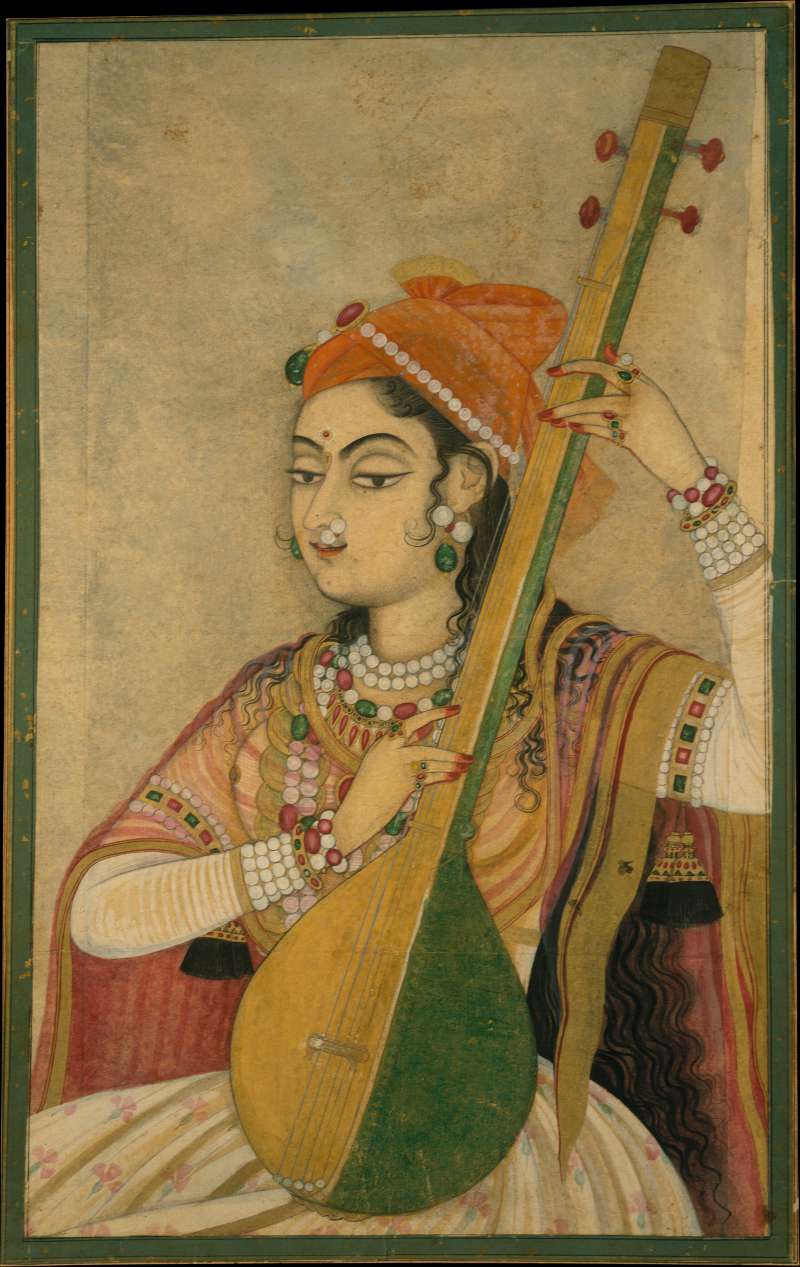FWP:
SETS
MUSIC: {10,3}
WARNINGS: {15,15}
WINE: {49,1}
Well, here it is: the beginning of the most linear, sequential verse-set (verses {169, 6-12}) in the whole divan-- and by far the most famous. It actually has narrative coherence, organic unity, an internal progression, and all that. If we mixed up the order of the verses, we'd be very likely to damage the poetic effect-- which is a pretty rare degree of continuity, as verse-sets go.
The verse-set is framed as a warning against the doomedness of romance and desire, and against the terrible, traitorous beauty of the senses. It's couched in the form of a solemn, extended admonition to newcomers-- almost the kind of puritanical sermon that the Preacher would deliver. But of course, it's so suffused with poignancy and nostalgia that it ends up becoming more of a back-handed compliment, more of a lament.
The 'fresh-arrivers' have come to a 'spread' [bisāt̤]-- a word most cleverly and suitably multivalent. It often means a feast or dining-cloth, as well as the other possibilities in the definition above, all of which evoke various domains of pleasure and desire [havā].
Take warning, says the second line, if you have a desire [havas] for the music of the flute (it's a reed-flute; see {10,3}) and for 'drink'-- which here means 'alcoholic drink', just as it can in English ('Do you drink?'). The verse unabashedly and firmly points beyond itself, obviously to later verses in the set. So it urges us, in effect, to move right on, rather than pausing to meditate at length.
As a small and subtle pleasure, however, it offers us the intriguing juxtaposition of havā and havas . The two clearly have a large domain in common, more or less that of 'desire' in English, which similarly can mean all kinds of desires, including sensory (sensual, sensuous), lustful, and romantic. So perhaps we're meant to read them as roughly synonymous, and to take them as placed where they are because of their different metrical possibilities (each one can suitably accommodate an iẓāfat within its own metrical setting).
But there's also a distinct difference of nuance. The penumbra of havā inclines toward love, and that of havas toward lust. In the light of this distinction, should we recalibrate the two lines? Is the first line addressed to those who are new to 'love' (the 'desire of the heart'), and who therefore are in danger of falling victim to a kind of sensory 'lust' (for music and wine)? As so often, it's left up to us to decide.
Compare Mir's own superb verse-set about wine-drinking, good company, and the power of time: M{239,7}.

Nazm:
By tāzah-vāridān is meant youths. In Arabic, havā means 'longing, desire'. By nai-o-nosh is meant listening to the flute and drinking wine. (190)
== Nazm page 190